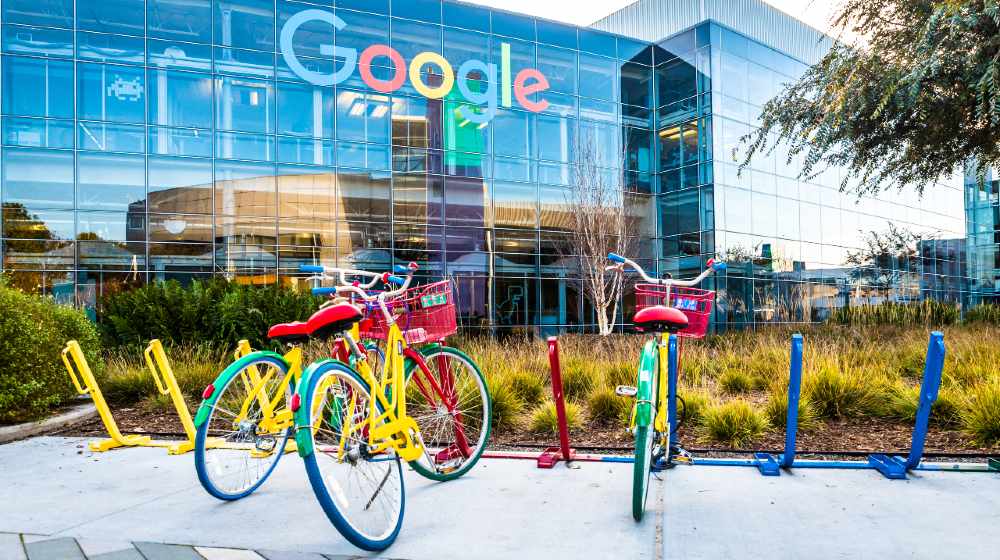Uncategorized
DOJ Files Antitrust Suit Against Google

Yesterday, the US Department of Justice (DOJ) filed an antitrust suit against Google. The Justice Department alleged that Google maintained a monopoly on internet searches. Its dominance allowed it to cut off rivals from critical distribution channels.
RELATED: Legislative Changes on Tech Companies
Eleven Republican state attorneys general joined the lawsuit as plaintiffs. These are Arkansas, Florida, Georgia, Indiana, Kentucky, Louisiana, Mississippi, Missouri, Montana, South Carolina, and Texas.
DOJ Cites Sherman Act of 1890
Under the Sherman Act, DOJ lawyers alleged that Google illegally maintained monopolies. This covered markets for “general search services, search advertising, and general search text advertising.” US Deputy Attorney General Jeffrey Rosen led the filing of charges. He said that “Google is the gateway to the internet and a search advertising behemoth. It maintained its monopoly power through exclusionary practices that are harmful to competition.”
The lawsuit comes after a House Judiciary report that says some tech act as monopolies. Apart from Google, Amazon, Apple, and Facebook also got mentioned. The report recommended Congress to update antitrust laws. These changes can help with breaking up businesses.
Within a month, the Justice Department issued a lawsuit against Google. It is a result of a 16-month investigation into company business practices. Google got involved in a 2013 antitrust suit but did not get charged.
Monopoly Power In Online Search
Google allegedly tied up distribution channels for online search and related markets. The suit said Google “foreclosed competition for internet search” through exclusionary agreements. This prevented rivals from achieving the scale to fight Google’s dominance. The DOJ said Google holds 88% of the U.S. search market and 94% of mobile searches. Google allegedly harmed consumers by providing lower quality search and reducing choices.
The DOJ also claimed Google owns more than 70% of the search ads market. It said that the company’s monopoly power lets them charge more. While they charged more, Google provided lower-quality services in the absence of competition.
Exclusionary contracts
Google used exclusionary tactics with distributors of its Android mobile OS. As such, Google also suppressed innovation in the search market. Google allegedly requires phone manufacturers who use Android to agree to certain limits. Android-powered devices that aren’t compliant with Google standards face selling restrictions. The company then provides the same manufacturers access to its “vital proprietary apps.” They do so in exchange for agreeing to carry other Google apps. Under the agreement, the devices should prevent users from deleting certain Google apps.
Apart from exclusivity, Google’s revenue-sharing model for distributors helped expand its dominance. A senior executive described the model as bittersweet. He said it was“a bitter pill for carriers, and a generous revenue share is a sugar that makes it go down smoother.”
Apple’s partnership
Google’s partnership with Apple is the centerpiece of the DOJ’s allegations. Google allegedly misused its power in an anticompetitive manner. At stake is a major revenue stream for both tech giants.
It’s no secret that Google relies on search traffic from Apple’s iPhones. The search engine is the default service on Apple’s Safari phone browser. This means that consumers get Google search results—and related advertising – automatically. The agency claimed Google “locked up” distribution by entering exclusionary agreements with Apple.
Google responds to the suit
Google Chief Legal Officer Kent Walker responded immediately to the suit via a blog post. He laid out the company’s rebuttal to the DOJ’s claims.
He wrote: “Today’s lawsuit by the Department of Justice is deeply flawed. People use Google because they choose to, not because they’re forced to, or because they can’t find alternatives. This lawsuit would do nothing to help consumers. On the contrary, it would artificially prop up lower-quality search alternatives, raise phone prices, and make it harder for people to get the search services they want to use.”
Walker refuted claims that Google’s arrangement with Apple is exclusive. Rivals also pay to appear in Apple’s Safari. He said Apple chose Google search because they found it as “the best.” He linked a 2018 article where Apple CEO Tim Cook complimented the search engine.
Missed the Main Point
Walker also said that the suit missed the “bigger point.” He argued that consumers choose to use Google’s services because they want to. In case they didn’t, switching default search engines is an easy task to do. Walker pointed to specialized search engines like Expedia, OpenTable, and even Twitter. These companies help people seek specialized information and are available. While Google pays for digital shelf space competitors “are readily available too.” As for agreements, he said that Google’s contracts are industry standard. They offer nothing unusual.
Watch this as FoxNews reports that the US Department of Justice has filed an antitrust lawsuit against search engine giant Google:
Do you think that the antitrust suit has merit and that Google might be too big a company? Do you use, or even know, any other search engine other than Google? If not, is that enough proof of the company’s monopolistic behavior? Let us know what you think by sharing your comments below.
















3 Comments
HELP!!! MY REVELATION 12 LOTR ETC.BLOG NEEDS TO REMAINS SAFE WHILE GOOGLE & SERGEY BRIN & NICOLE ALL GET THROWN INTO PRISON.
THEY ARE INTO MORE THAN MONOPOLIZING THRJR SEARCH ENGINE COMPETITION.
THEY ARE TRYING TO ADULTEROUSLY STEAL MY HUSBANDS AND MY REVELATION 12 LOTR ETC STORY:POSSESSIONS.
Kimchirev12.blogspot.com
kimchirev12.blogspot.com
kimchirev12.blogspot.com
GOOGLE can not be trusted, that has been proven!!!!!
Enter “Donald Trump” into your Google search engine and see how many of the first 30 hits are positive.
Google is biased to the point of incredulity.